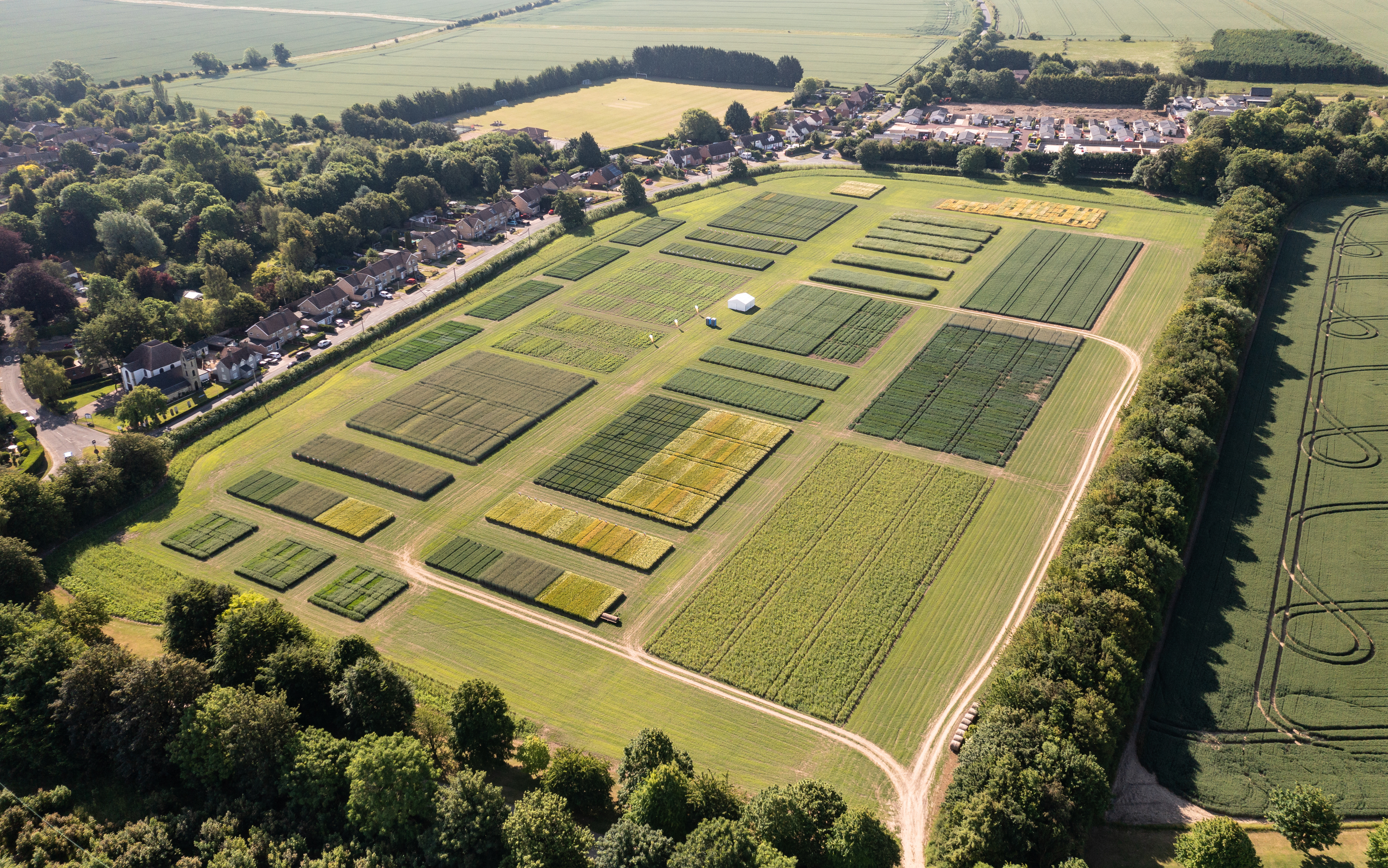KWS 2023 trials programme focuses on future sustainability of UK cereals production
Designed to tie in with KWS' Sowing for Peak Performance (SPP) initiative, the trials will focus on five key varieties although the findings will be of interest to all wheat growers, she believes.
"SPP is all about developing genetics to help producers meet future challenges be these enhanced physical properties to build resilience in the face of climate change, better disease resistance to work more effectively with fungicides or simply higher yields to optimise productivity.
"Key to these traits being as effective as possible in the field is the establishment of best practice around available inputs and management options through working with a range of technical organisations and companies to develop this.
"This year we are particularly focused on how growers can build greater resilience into their rotations and the areas of activity in our trials programmes reflects this."
Nitrogen use efficiency
One of the key areas to be looked at will be how to use nitrogen as effectively as possible in terms of cost-effectiveness, environmental considerations and making sure yields and grain quality are optimised, she explains.
"Nitrogen Use Efficiency (NUE) is under the spotlight like never before with last year's price rises really focusing the minds of many producers on how they can get the most out of this vital resource."
"With this in mind, we have teamed up with Yara to carry out a series of nitrogen response trials using their N-Tester leaf nitrogen measurement system to fine-tune applications."
"As the number of Group 1 varieties remains small, we'll be looking at using the approach in two Group 2 varieties, KWS Extase and KWS Palladium, that have excellent milling potential as well as high yields."
"The idea being to see how we can maximise yields whilst maintaining optimum protein content."
"We'll also be looking at the UK's most popular Group 4 variety KWS Dawsum and how we can deliver the highest yields from this through cost-effective nitrogen management including how moving to Yara's new low-carbon green fertilisers can help achieve sustainability targets."
Optimising fungicide use
KWS' 2023 fungicide trials will again be focused on the varieties KWS Extase, Palladium and Dawsum with the addition of the new varieties KWS Zealum and KWS Ultimatum, Olivia Potter adds.
"KWS Zealum is a soft Group 4 variety with stiff-straw, early sowing flexibility and distilling market potential whilst Group 2 KWS Ultimatum brings high untreated yields, good performance across the UK and the highest resistance to sprouting in the breadmaking sector."
"The fungicide trials will be carried out in conjunction with Bayer and Corteva and, as in previous years, will look at the optimum levels of fungicides needed to support the various varieties' disease resistance profiles."
"We are very much of the opinion that chemistry and genetics have to work in partnership, both to get the most cost-effective yield response and to protect the genetics of the crops for as long as possible whilst minimising the risk of resistance to valuable actives."
"In particular, we'll be focusing on Septoria resistance and have deliberately placed the trials in hotspots for this disease."
Best cultivation options
The same five varieties will also be the basis of another major series of trials carried out with Dyson Framing Research looking at management and varietal choice for minimum/zero and conventional full tillage choices, she points out.
"We've looked at this in the past with some of our more established varieties, so it will be interesting to see how our new portfolio performs in terms of method of cultivation."
"Previously it was the later drilling varieties such as KWS Extase and KWS Cranium that did well in minimum cultivation scenarios."
"In fact, KWS Extase produced a yield just 0.8t/ha less than in the full cultivation approach during the first year of transition to min till."
"Both varieties have strong all round agronomic packages so that helps with their overall resilience, so varieties like KWS Dawsum and KWS Ultimatum should also do well with these approaches, too."
Spring cropping will also come under the spotlight in 'Project Lamport' with Agrovista which will be a rotations trial looking at spring wheat and barley options, particularly with regard to cultural control of blackgrass and other persistent grass weeds, she adds.
"We'll also be examining the role of cover crops in spring cropping and how they give the opportunity to improve soil structure, build valuable soil organic matter and add key nutrients."
"Our final major trial with Frontier is looking at nitrogen usage on a selection of new milling wheat varieties. Currently in NL2, they are from a range of sources and are expected to be commercially available in the UK in the very near future."
